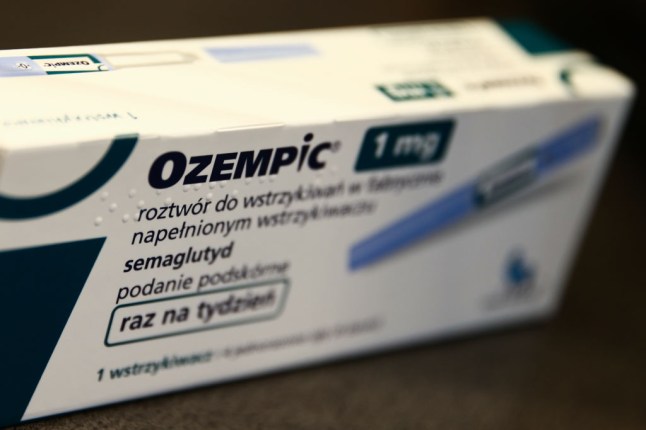
With 86,700 tagged videos on TikTok, and celebrity fans including Oprah and Elon Musk, the world is fascinated with so-called weight loss drugs.
Ozempic, one of the most well-known, is actually a medication used to treat type 2 diabetes, improving blood sugar to reduce the risk of major cardiovascular incidents. The Ozempic guidelines outline that the drug – which is injected – ‘may help you to lose some weight’ but specifies that it is ‘not for weight loss.’
While Ozempic is used to treat type 2 diabetes, Wegovy – another form of the ingredient semaglutide, under a different name – is used to treat ‘adults with obesity or excess weight who also have weight-related medical problems’, its website reads.
But the problem is this: these drugs are increasingly being framed as a ‘quick fix’ to trigger weight loss, reinforcing toxic stereotypes around body image. And when taken without medical guidance, users can run into big problems.
Weight loss drugs aren’t something to mess around with – one side effect colloquially termed ‘Ozempic face’ is symbolic of that. But what is it? And what are the dangers of taking semaglutide incorrectly?

What is ‘Ozempic face’?
This phenomenon refers to sagging, ageing and lacklustre appearance of the facial skin and structures,’ according to Dr Adil Sheraz, consultant dermatologist and British Skin Foundation spokesperson.
He said: ‘The face has a layer of fat that essentially stretches the skin. Ozempic results in rapid weight loss and does so very effectively. This, of course, will lead to rapid loss of subcutaneous (under the skin) facial fat.
‘The overlying skin however will not be able to shrink at the same rate, resulting in a sagging, droopy and wrinkled appearance.’
Dr Paul Jarrod Frank, a dermatologist in New York thought to have coined the phrase, told the New York Times he’s started seeing Ozempic face ‘every day’ since these drugs hit the mainstream.
He said: ‘A 50-year-old patient will come in, and suddenly, she’s super-skinny and needs filler, which she never needed before. I look at her and say: “How long have you been on Ozempic?” And I’m right 100 per cent of the time.’
This isn’t necessarily specific to Ozempic. As Dr Sheraz explains, this change in facial features can occur with any type of rapid weight loss.
He said: ‘However, as this drug has been in the media recently it has caught the public’s attention.’

Features resembling ‘Ozempic face’ can also be more common with age. Dr Sheraz added: ‘Ozempic face may be more of an issue in older individuals as there is less collagen and elastin in our skin as we age, therefore its ability to adapt reduces.’
Because the term ‘Ozempic face’ references the off-brand use of the drug – i.e. incorrect usage by people who don’t have type 2 diabetes, but who want to use it for weight loss – Novo Nordisk, the company that manufactures Ozempic, couldn’t comment on ‘Ozempic face’ specifically.
However, spokesperson Novo Nordisk told Metro.co.uk: ‘Regarding safety, the most common adverse events among people treated with Ozempic(semaglutide) for its indicated use, are gastrointestinal events including nausea, diarrhoea and vomiting.
‘Most events were transient, and mild or moderate in severity and resolved without permanent treatment discontinuation.
‘Ozempic (semaglutide) is a prescription-only medicine indicated for the treatment of adults with insufficiently controlled type 2 diabetes mellitus as an adjunct to diet and exercise (as monotherapy or in combination with other medicines for treatment of diabetes).’
More Trending
What are the risks of taking weight loss drugs recreationally?
Taking semaglutide without medical guidance is not recommended, making the black market of weight loss injections worrying.
It can impact the body’s ability to absorb nutrients and cause changes in intestinal health or even pancreatic inflammation (also known as pancreatitis). Short-term, it can also facilitate hypoglycaemia (low blood glucose) which, in severe cases, can lead to seizures.
Nutritionist Rhiannon Lambert said: ‘More often than not, these types of products and the way they are marketed prey on people’s vulnerabilities and exacerbate the expectations to look an “ideal” shape or size.
‘Not only do these products discourage healthy eating habits and may potentially cause disordered eating, [but] they’re often purchased online, which may be dangerous as there is a lot less regulation when buying through the internet.
Get the rest you deserve
‘There is no one-size-fits-all when it comes to our health and wellbeing.’
Do you have a story to share?
Get in touch by emailing MetroLifestyleTeam@Metro.co.uk.
MORE: Barbra Streisand insists Ozempic comment was a ‘compliment’ as Melissa McCarthy takes ‘the win’
MORE: Experts warn over rare side effect of Ozempic and Wegovy
MORE: What you need to know about Berberine, the ingredient du jour dubbed ‘nature’s Ozempic’














